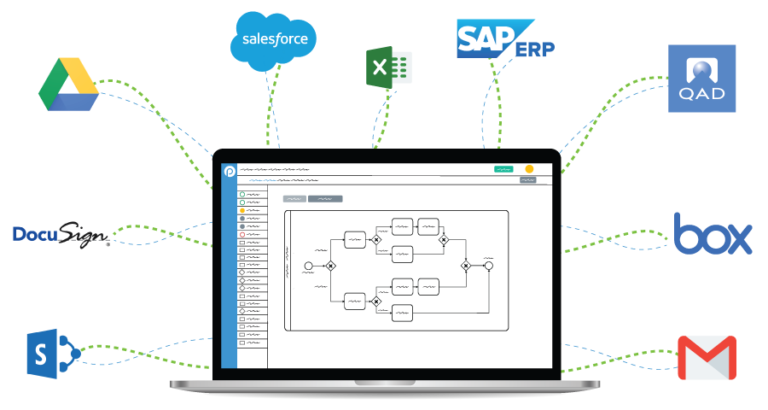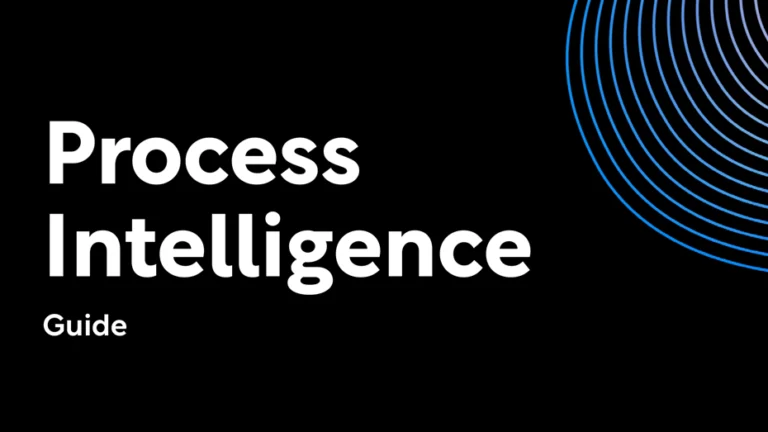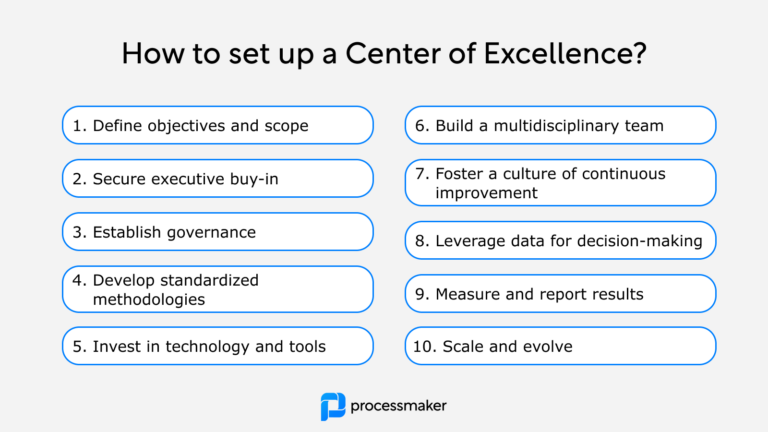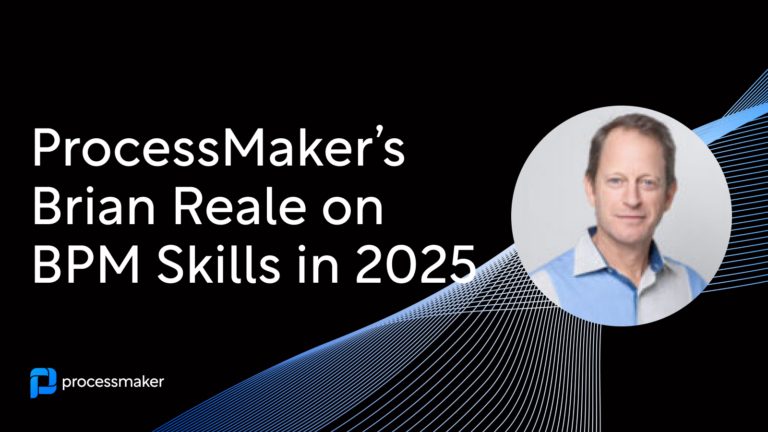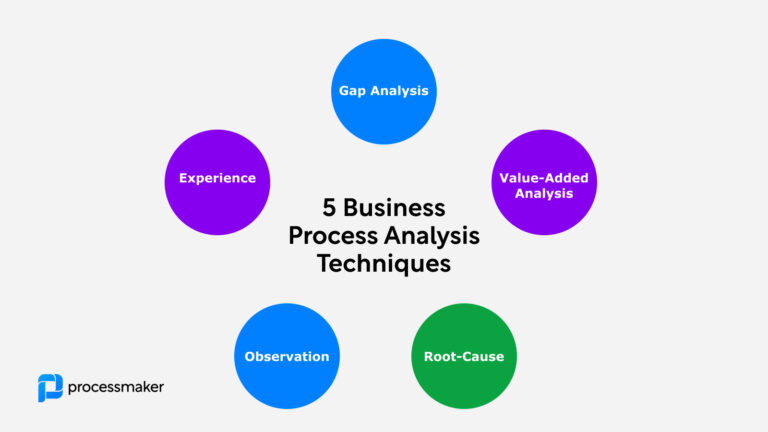When discussing the prospect of digital transformation, it should revolve around working differently and not something embarked upon simply for the sake of changing.
For instance, it should optimize operational efficiencies and address the evolving business needs of the target customer. Many organizations are now realizing that inducing better customer and employee experiences requires automated workflow capabilities that are scalable enough to not only meet the needs of today but to also have the ability to meet the demands of the future. Where many digital transformation strategies struggle is finding the balance between mitigating the current process problems while also facilitating the flexibility to shift when needs change.
However, there is a solution to be found with intelligent business process management suites (iBPMS). There are many beneficial components and functions of iBPMS which we will discuss below:
What are Intelligent Business Process Management Suites (iBPMS)?
BPM is already a great solution, but iBPM takes it a step further with AI, cloud computing, real-time decision making, system linking, and event processing. iBPMS combines business process management (BPM) with artificial intelligence (AI) to create dynamic, start-to-finish, workflow experiences quickly via a cloud-based platform and low-code tools. In fact, iBPMS can link people, machines, and the Internet of Things (IoT) to ensure both support and intelligence for repeatable, organization-specific processes. It is designed to support value-added knowledge work. In fact, Gartner introduced the concept in 2012. Since then, businesses have been calling iBPM the future for forward-thinking organizations.
Where would you apply an iBPMS?
Initially, the iBPM platform requires your input along with its collected data to perfect your processes. The AI component can analyze your current processes to determine which ones should be automated.
In addition, the analytics side can monitor workflow KPIs in real time – from a central portal – to help identify opportunities for improvement. iBPM isn’t a new concept since it has already been taking place within organizations that have been utilizing BPM in conjunction with other smart technologies to enable better business processes and workflows. Also, iBMPS does leverage machine learning, data mining, cloud computing, business rules, and even social features.
There are several uses cases for an iBPMS system including the following:
- To spot opportunities for process optimization.
- To add a service extension for mobile end users.
- To include more analytics functions.
- To process real-time events.
In what ways is an iBPMS different from BPM?
If you wanted to make your BPM more intelligent, how would you do it? Perhaps by connecting various technologies that weren’t included with the first iteration – right? iBPMS essentially revamps traditional BPM with smart technology that adds value to your business processes. It’s the more powerful version of BPM. For example, iBPM is much more dynamic and offers better operational responsiveness over BPM. Here are other ways iBPMS is different from BPM:
- Supportive real-time analytics for intelligent business processes.
- Support for mobile platforms.
- Highly complex event processing.
Invariably, it makes sense why many organizations are flocking to deploy an iBPM system. As a result, businesses can completely control their complex processes and enjoy a competitive advantage. Further, they can streamline repetitive tasks. Even complex needs can be met due to the AI that supports iBPMS which gives companies the ability to not only increase overall accuracy within their operations but also to make data-driven decisions.
When companies want to take their current BPM to a more advanced level, they adopt iBPMS. Even relevant wrapper functions can be added to processes whether they be manual or automated.
What are the benefits of an iBPMS?
Think of iBPMS as the evolution of BPM. It is taking traditional BPM software and fusing it with predictive analytics, process intelligence, and other new technologies. It is what contemporary businesses need to ensure organizational process efficiency. Other benefits consist of the list below:
- Superior integration with other tools
- Advanced analytics
- User-friendly low-code tools for citizen developers
- Complex event processing, optimization, monitoring, and management.
- Cloud-based tools
- Ability to integrate with the Internet of Things (IoT)
- Ease of use
- Continuous process improvement (CPI)
Let’s dig a bit further into the advantages of deploying an iBPMS:
Mobile
Now, remote and field employees can experience streamlined processes such as those dealing with logistics and even installations. Not to mention, this helps to improve consistency and measurability of automated tasks.
Advanced analytics
If you want to track and adjust workflows, you need to make data-driven decisions based on accurate analytics. And, this becomes increasingly significant in terms of providing predictive and optimized processes that affect employees and consumers.
Social capabilities
The future of work will involve real-time intelligence. It requires a new approach, especially with regard to social engagement. More dynamic engagement will require machine learning to better identify which actions are needed based on customer input.
As a result, you can enhance your company’s ability to meet customer expectations with flexible and intelligent business process management.
If you’re ready to get started with an iBPMS, what would be on your list of qualification requirements?
How to select the right iBPMS platform provider
Let’s face it, finding the right iBPMS partner can feel daunting – even overwhelming despite having a clear and well-structured strategy. Although, the right iBPMS provider will depend on where your business processes are currently, what you have in terms of skilled resources, and also how you access data.
If you go by the Gartner Magic Quadrant model for iBPMS, then you would qualify based on these four use cases:
- Digital business transformation
- Digital business optimization
- Self-service intelligent business process automation
- Adaptive case management
Once you have made your decision, you can enjoy real-time decision management that is more than simply automating processes – it is intelligent.
Flexibility for robust business requirements
iBPMS offers key insights into the behavioral patterns of your processes which facilitates direct action.
To illustrate, if a future process is on the cusp of falling behind schedule, the system can alert the process owner so that they can mitigate the issue manually – before delays erupt and negatively impact other workflows. These improvisational tasks can be added to a process to further improve optimization.
Additionally, embedded with low-code technology, you can quickly create custom applications and workflows designed to meet your unique business needs with the personalization you require. It takes little-to-no-effort for any employee to use iBPMS for promoting efficiency, productivity, and achieving strategic business objectives. Therefore, your business is empowered to do more while attaining more accurate and consistent results.
